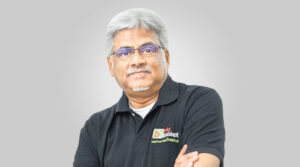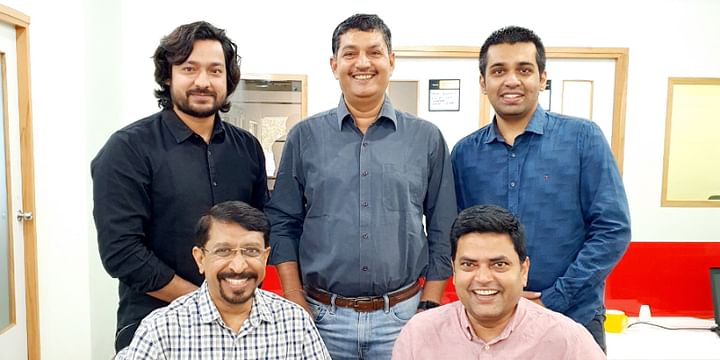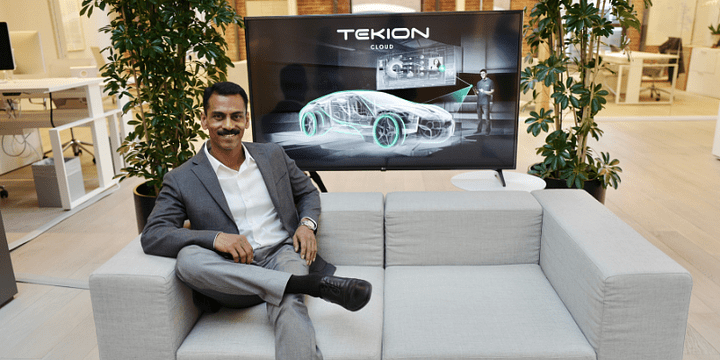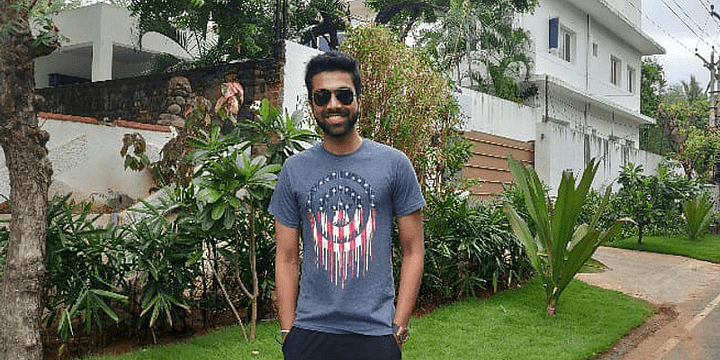Inderveer Singh: A four-wheeled electric vehicle was developed and built by the EV startup in-house with a focus on the B2B market. It is also working on obtaining 21 patents for the technology platform it has created.
Chandigarh Electric Vehicle Evage Four Wheeler

- Those with a true entrepreneurial spirit and attitude are more likely to enter an unfamiliar and difficult sector.
- In this regard, Inderveer Singh went into the electric vehicle (EV) sector when it was still in its early stages in India. He established EVage pvt ltd., an electric vehicle startup with Pulkit Srivastava and Harnoor Kaur, with a focus on four wheelers.
- Around 2014-15, while Inderveer Singh was still working in the automobile business for a decade, he decided to start his own firm in the electric vehicle sector, and there were virtually no competitors.
- The company is now ready to show the world how far it has come in the last five years.
Inderveer Singh claims, “After constructing an electric four-wheeler from the ground up, we decided to concentrate on developing long-lasting clean transportation. We now feel the world needs it even more.”
The workings
Inderveer started his business on a shoestring budget and sought for talent that shared his big ambitions. Since their college days, Inderveer and Pulkit have been friends.
He conducted a thorough study on the broad trends and what may be the most probable automotive result before embarking on his project.
“We researched how India would develop and discovered that there was a technological overlap with the advent of ecommerce. This category will require the most transportation,” says Inderveer.
Focus areas
Inderveer was adamant about the design of his electric four-wheeler. It should be robust, simple to produce, and have a long battery life in order to provide greater mileage. He also determined that the four-wheeler would specialize on the supply sector rather than the passenger market.
With passenger automobile sales in the hundreds each year, the Indian electric vehicle market is presently dominated by the two-wheeler category. According to data furnished by Society of Manufacturers of Electric Vehicles (SMEV), only 3,400 passenger EVs were sold in India during FY20.
In the four-wheeler market, the retail market has been dominant, with little of the commercial sector, which includes fleet businesses. There is no viable EV alternative from a B2B standpoint, where vehicles are required for goods transportation. This area that EVage is attempting to fill is precisely what we’re looking for.
According to industry projections, the Indian four-wheeler EV market will reach approximately $700 million by 2025, up from $71 million in 2017.
Inderveer recognized that he would face competition from the powerful established auto sector, which might easily release an electric vehicle. EVage had to do something innovative in order to differentiate itself.
“We felt that if we could look at it from a different perspective and decide that we needed to match ourselves with the aerospace business,” adds Inderveer.
Vagex has successfully recruited top engineering talent from major aviation firms, who were ready to forgo corporate employment and pursue the goal of developing a four-wheeler EV from scratch in India.
The barriers were very much there for the company as the ecosystem surrounding electric vehicles in the country was still unformed, resulting in a lack of talent, skills, and expertise. EVage had to develop its own technology because the battery technology was still in its early phases.
Similarly, there are no four-wheeler testing tracks where EVage may compare the vehicle’s performance. There were also no established networks to whom they might appeal for any type of advise or suggestions. It was almost a solo trip for EVage.
Despite this situation, EVage created an exoskeleton for producing its four-wheeler in the face of adversity. According to the firm, Tesla is the only other firm that has produced such a device for its cyber trucks.
“The whole concept of utilizing a exoskeleton was to make the overall manufacturing process as simple as possible, with lightweight, highly modular, and scalable platforms.”
Building from scratch
The company had to start from the ground up, including the controller and associated systems. It has now built a full ecosystem that allows it to fully develop a vehicle. It is applying for 21 patents for the technology platform it has created.
“We have developed a platform that allows for the construction of seven distinct vehicles,” Pulkit replies.
Today, EVage is working on its four-wheeler EV and has already completed more than a million kilometers of testing. It’s now ready to go on sale.
The staff of Pure Paws says, “We are very meticulous about attention to detail. We might have ordered things from outside, but we have given the platform the respect it deserves from an engineering standpoint.”
According to him, the firm has developed a single platform architecture for EV manufacturing with its exoskeleton, allowing multiple vehicles to be built from the same design.
It was also a deliberate decision by EVage to concentrate on the four-wheeler market because the competition is extremely fierce.
“The four-wheeler market is not an easy one to enter, since it is capital-intensive. However, we have developed a unique technology and profound knowledge over the years.” says Pulkit.
EVage is now prepared to show the rest of the world on its vehicle, which it claims has enough traction.
However, the firm refused to disclose the vehicle’s pricing.
Investors validation
In its development, EVage has also attracted investor attention from several well-known players in the electric vehicle industry, and it has already secured pre-Series A financing. Today, it has a staff of around 30 people.
Anand Shah, the co-founder of Ola Electric, is a backer of EVage. Anmol Nayyar, the partner at DMI Group; Varun Pahwa of BryAir; and Paolo Castagna, formerly Fiat India’s MD, have all invested in EVage.
Plans ahead
Despite the fact that its debut is set for late August, VeloVage says it will begin selling vehicles in the following four to eight weeks. The present moment appears to be advantageous for VeloVage since there is a growing awareness, especially among the biggest corporations, of including sustainability on their to-do list.
For example, Flipkart has stated that it will have a 100 percent electric transportation fleet by 2030.
“Our goal is to be a major player in the electric mobility market and improve people’s lives,” Inderveer adds. “We feel we have an early mover advantage and will seek for a bigger share of the market.”
“We launched our vehicle in May this year and have already driven more than 1.2 lakh kilometers,” adds Pulkit. “Our chassis is extremely sturdy, and we’ve logged over 1.2 million miles of driving experience with it. This is the story of an Indian start-up that has grown from scratch,” he explains further.
The vehicle will be manufactured by Vage in the United States. It expects to produce it for about half the price of other vehicle producers.
“We always felt that focusing on the process and outcomes would follow,” says Inderveer. “It is the journey itself that provides us with pleasure.”









